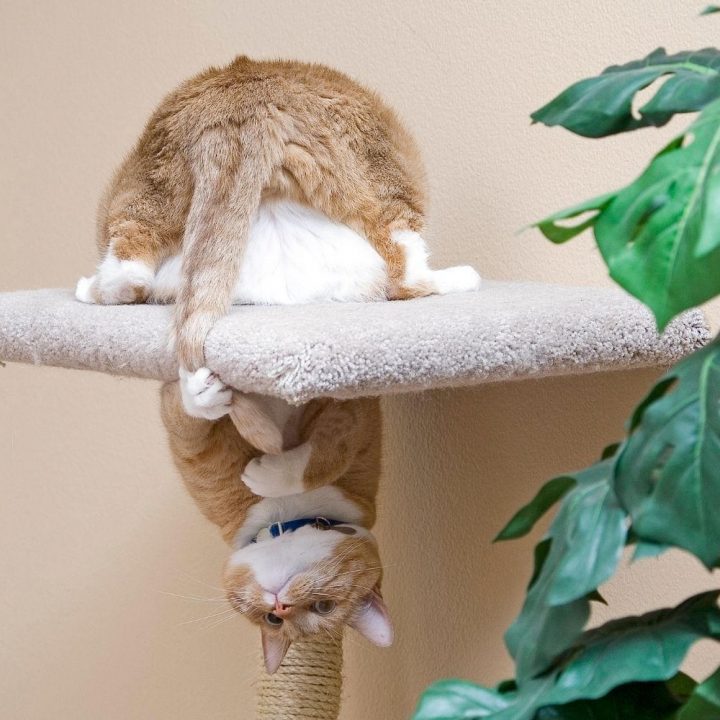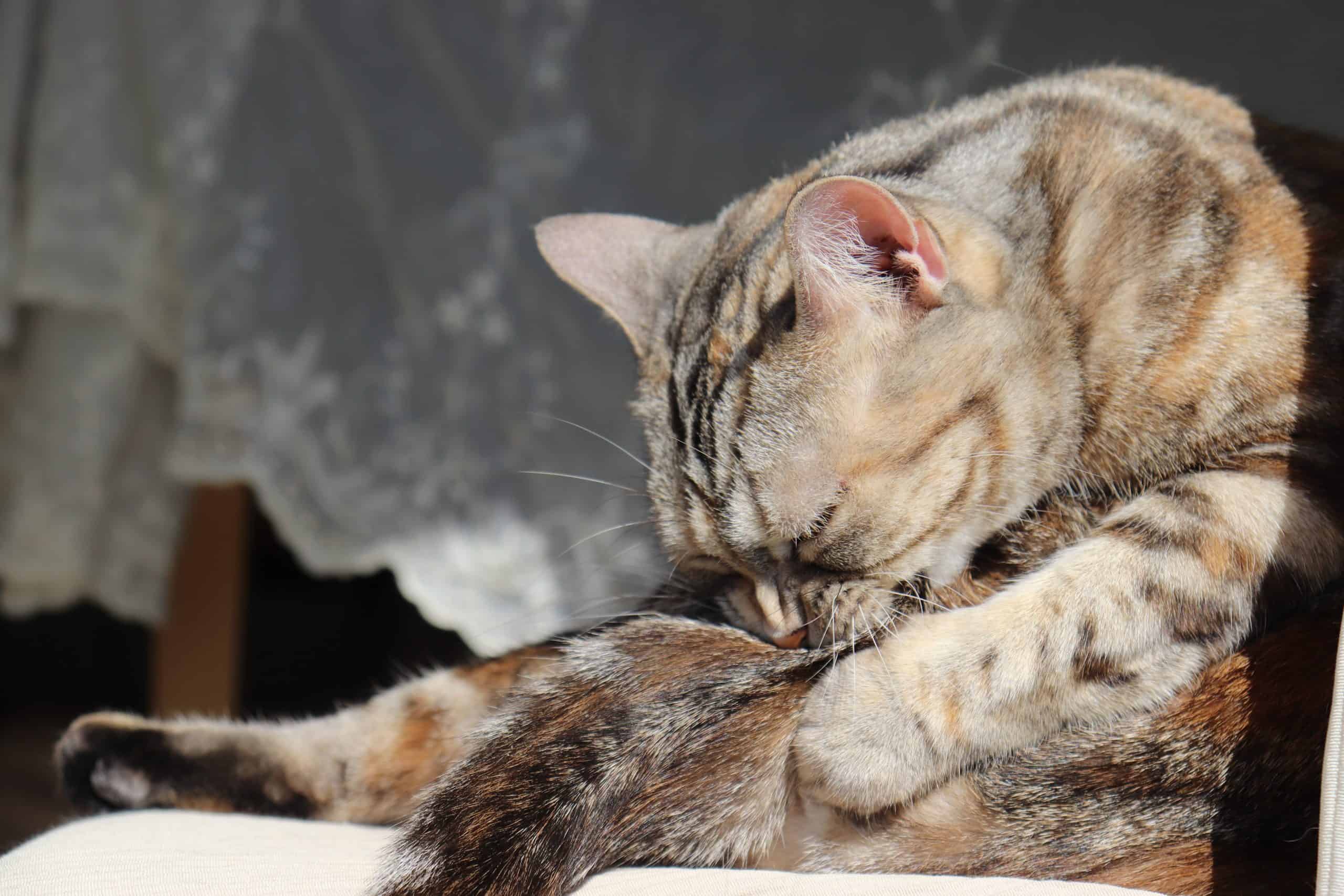Dogs, however, often do it because they’re bored, young puppies may not even realise that it’s part of their body and instead think of it as a toy There are a million questions about why cats do what they do and why they do it.

Why Do Cats Chase Their Tails?
Feline hyperesthesia syndrome, stud tail, compulsive disorders, or fleas may lead a feline to chase or attack her tail!

Why do cats chase their tails. And, unfortunately, there are times when a cat chasing his tail signals the opposite of fun. Cats crave attention and are often the pets that are home alone quite frequently. It’s a form of play.
For a kitten chasing its own tail is just plain old good fun. When it comes to play, kittens are actually practicing their hunting skills. It seems pointless, but there are many reasons why they do this, and they are all quite fascinating.
Cats chase their tails as a natural response to their hunting instinct. When your cat starts chasing its tail suddenly, first check for body injuries, flea infestation, bumps, change of behavior. There can be a wide variety of reasons as to why do cats chase their tails.
It is important to note how often is your cat chasing its tail and whether is it aggressively biting its tail. Cats typically chase their tails to fulfill their hunting instinct (playtime) or out of boredom. If your cat chases its tail occasionally,.
If your cat so happens to be allergic a single bite can cause quite an episode. An adult cat might be chasing his tail out of boredom or to relieve stress, especially if you notice that when doing it, he is not biting or damaging his tail. But sometimes a cat does this kind of behaviour to.
A cat chasing its tail is a natural trait in animals and it may be doing it because the cat is in a playful mood. It can use licking, biting, or scratching to accomplish this. Oblivious to all the surrounding, figuring everything out.
Movement, even of inanimate objects like circles or dots, indicates to both you and your feline that something is alive. If you see this new behavior and it seems to coincide with changes in the household routine, try to ensure that your cat has plenty of stimulation (laser pointers are great distractions!) and interactive toys. The first and most common reason cats chase their tails is because they like doing it.
This is why they love items that they have to chase or that they can stalk. One of them is “why do cats chase their tails?”. “cats can also chase their tails for a number of medical reasons,” dr.
Unless they have another feline friend or even a dog to keep them company, their pent up energy may induce tail chasing. Cats are predatory animals, and going after their tail is a lot like playing with their favorite feather wand. This can range from a cat being playing to other health issues like stud tail, flea infections or stress.
This is why laser pointers or a tugged piece of. Tail chasing behavior is instinctive, and it indicates that your furry friend is bored and trying to kill time. An adult cat won’t chase his tail simply to have fun.
If tail chasing is a new and constant behavior then get your cat to the vet as soon as possible for a checkup as it may be a symptom of something more serious. When most indoor cats don't get their environmental needs met, they simply become bored, sometimes even depressed. If your cat is in pain, it will most likely focus on the cause of the problem.
Here are a number of reasons why a cat chases its tail. Understanding your cats’ behavior is the first step to determining the real reason why the cat is chasing her tail. In some cases, your cat may appear to be chasing its tail while it is actually in pain.
Their tail moves in their peripheral vision, and they pounce. Do not assume the cat is having fun chasing her tail, it could be due to an underlying health issue. When a cat is chasing its.
Scroll down this article to discover! More often, the explanation for this behavior is an underlying medical issue. There's a good reason his tail is a becomes a target for hunting practice:
Why do cats chase their tails? As a recap, cats chase their tails for fun, to chase fleas away, or to scratch their tails. The above are a subset of potential medical concerns that can cause cats to chase their tails.
If your cat is chasing its tail out of playfulness then it would be best to sit back, smile and enjoy the silly show. Because he wants to do that. Cats hunting abilities are tuned to movement so if they see a tail, even their own, their instincts tell them to chase it.
Why do cats chase their tails? If you catch your cat chasing their tail on a regular. Curious kittens also chase their tails because they don’t know that this appendage is a part of their body.
Especially when your cats get excited, they suddenly look at their tails and start to chase them awfully. It activates their natural instinct to chase down a moving object. After all, the felines have a reputation for behaving oddly out of the blue without apparent reasons so sometimes, it's just pointless to explain every behavior of the pets.
Spano, if anxiety is sending your cat into a (literal) tailspin, the first thing you should do is remove those triggers. In certain cases, the best answer to the question of why does my cat chase his tail is plain: Indoor cats do not often have the same activity opportunities of cats that spend most of their time outdoors.
Thus, always have it in mind that only kittens chase their tails for entertainment. More often, the third reason’s caused by an allergy, an infection, or another ailment.

Why do Cats Chase Their Own Tail? YouTube

Why Do Cats Chase Their Tails? The Pets KB

Why do Cats Chase Their Own Tail Love Meow

